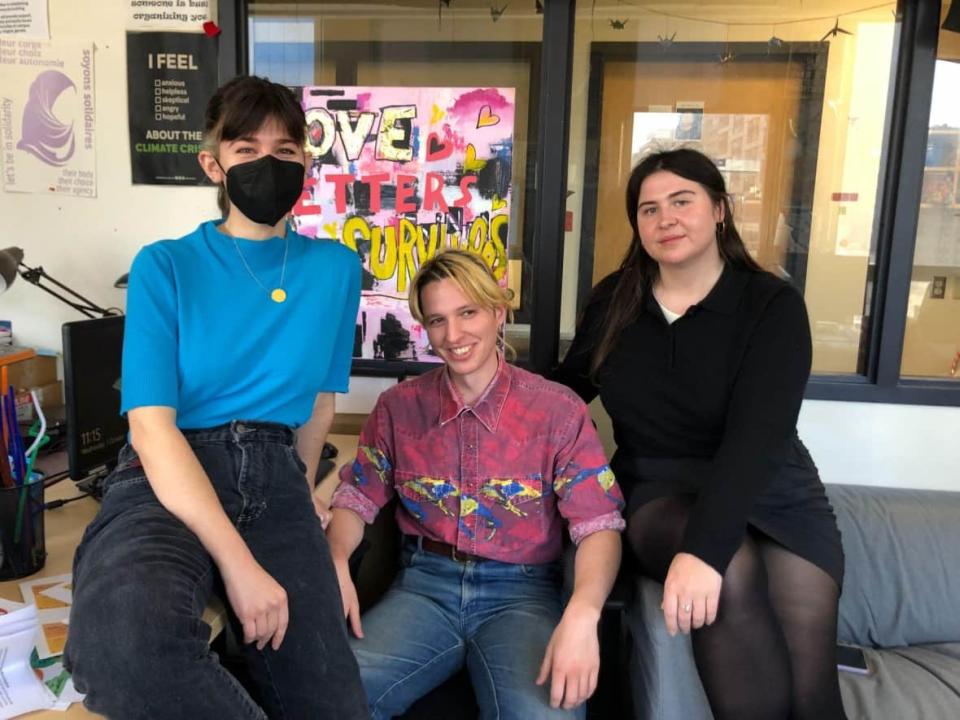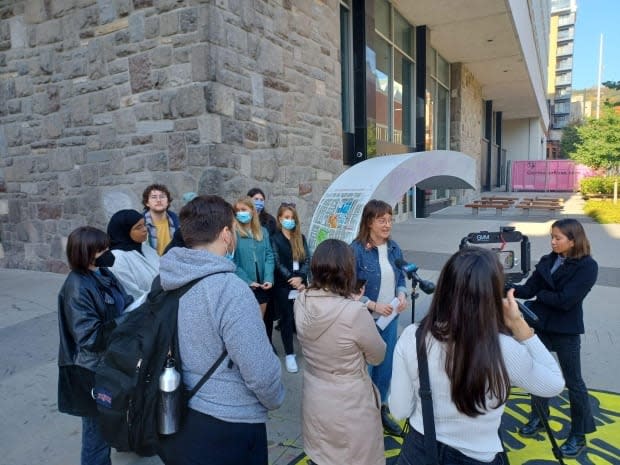Concordia University dragging feet on sexual violence policy, student unions say

Three organizations representing over 46,000 students at Concordia University are walking out of discussions to draft a new sexual violence policy, claiming the university cares more about its reputation than protecting students.
The Teaching and Research Assistants at Concordia (TRAC) union, Concordia Student Union (CSU) and Graduate Student Association (GSA) say the administration undermined their participation and created a "hostile" environment.
"We will not participate in a process that ignores students, claims to care about students, lists them as the top stakeholders in this committee but ultimately protects institutional reputation above [our] safety," said Saskia Kowalchuk, a representative at TRAC.
The groups say the university's administration has been dismissive of students' concerns and experiences, years after students and an outside group criticized its lack of sexual violence support.
In 2017, Our Turn — a non-profit that examines inequalities in educational systems — gave Concordia's sexual violence policies a nearly failing grade of D-.
Later that year, a task force was formed to improve the policies and bring them into line with Quebec's Bill 151, also known as the Act to Prevent and Combat Sexual Violence in Higher Education Institutions.
The bill forced all post-secondary institutions to have a sexual assault resource centre, a standalone sexual violence policy and mandatory training for students and staff.
Despite that, those who sat on the committee say little has changed over the last five years.
"Since the very beginning of this committee, students have been ignored and they've been dismissed," said Margot Berner.
"Their experiences of sexual violence have not been not taken seriously in any way and honestly it's been quite brutal, it's been quite mean … especially when you're supposed to be designing a policy that helps people who have experienced some of the worst things in their lives," Berner, who uses they instead of the gender-specific pronoun she or he, said.
Sexual violence not same as academic misconduct
The university's administration has been holding consultations with students, but Berner says the meetings don't resolve their concerns. They said the university then later puts students' names on the policies "like they're claiming we've been giving the OK."
"Which couldn't be further from the truth," they said.
Berner said the student groups didn't want to be used as "PR" for policies they feel they didn't have a say in, or support.
The groups boycotting the committee say the university's current sexual violence policy doesn't consider the needs of survivors.
Concordia's current sexual violence policy still refers students to the Code of Rights and Responsibilities, which is an academic code of conduct and not designed to handle issues like sexual assault.
"Sexual violence cases are handled too slowly and often by the same tribunal process as academic misconduct," said Kowalchuk.
According to Kowalchuk and the others who are boycotting, the policy often keeps complainants in the dark about proceedings. Outcomes can even require survivors sign a non-disclosure agreement, preventing them from sharing their story with peers who may be vulnerable, they say.
Kowalchuk said she refuses to be take part in a process that fails to meet the requirements of Bill 151, which calls for a standalone policy on sexual violence.
History of mishandling sexual violence cases
The university said in a statement that it only found out about the withdrawal last Friday, shortly before the standing committee on sexual violence's first meeting of the academic year.
"The message did not state the reasons for the withdrawal nor were these stated when student representation was finalized in August," said Concordia spokesperson Vannina Maestracci.
"The chair of the committee reached out to student representatives to learn more and has scheduled a meeting with them next week. We hope to be able to discuss their concerns and find a way forward."
But Mya Walmsley, a bargaining officer with TRAC who also uses gender non-specific pronouns, says they sent out a press release detailing their intent to withdraw from the committee days before and called the university's response "disingenuous."
Walmsley pointed to a highly publicized case brought to Quebec's Human Rights Commission which "demonstrates a long and informally spoken knowledge of the sort of events that happen [at the university]."
A woman who experienced sexual violence turned to Concordia to file a civil rights complaint and was shuffled from department to department. She was told she could not file the complaint until all resources offered by the university were exhausted. By the time she went back to the Human Rights Commission, the allowed delay to file a complaint had passed and nothing could be done.

Similar stories came out of the English department, and peer-to-peer violence has also been mishandled. Concordia and McGill University students have staged multiple walkouts and protests in recent years to push for better sexual violence and misconduct policies.
"This is nowhere near the kind of justice that we want for survivors of sexualized abuses of power," said Walmsley.
Walmsley, an international student, was warned about a philosophy professor through a whisper network, which they say students do to keep each other safe, "but it's no replacement for real mechanisms of accountability that are ultimately better for the entire community."
The philosophy department union collectively decided on what it calls a "work ban" against the professor, meaning members will refuse to teach or research for him, in order to push for meaningful change.
The department recruited international students and students from other departments to work with the professor. Once the students learned of his history, they quit their jobs in solidarity, said Walmsley.
But, Walmsley says taking jobs away from students is not the answer.
"What it means to have survivor-centric accountability processes is that survivors, students and workers who are …subject to these sorts of abuses of power, that they're in control, that they can have a real impact on these procedures that have an incredible impact on their lives," said Walmsley.

 Yahoo Movies
Yahoo Movies 